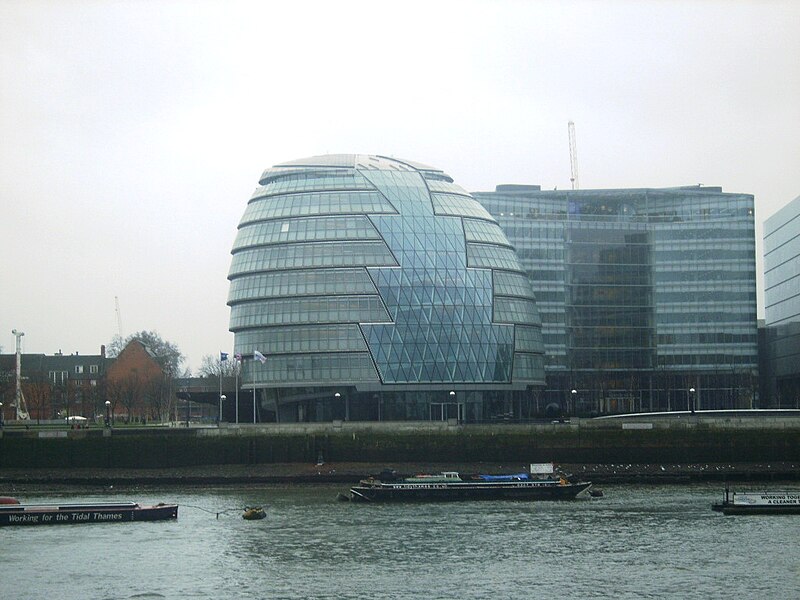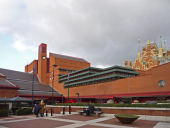
Successful schemes to make the capital more energy efficient are set to save more than 50,000 tonnes of carbon in 2024 – equivalent to nearly 85,000 flights from London to New York – the
Mayor Sadiq Khan revealed today.
Part of the Mayor’s goal to make London a net zero city by 2030, his Low Carbon Accelerator programmes are supporting schools, councils and the NHS to address both the climate and cost of living emergencies by making their buildings more energy efficient.
New data shows the programmes will continue to save around 170,000 tonnes of carbon emissions annually before 2030.
This work has also helped save an estimated 157GWh since 2016 - enough to provide electricity to 13,000 homes every year. Across London, more than 20MW of renewable energy infrastructure, such as solar panels, has been installed since 2016 through Low Carbon Accelerator programmes. This figure is expected to increase to more than 100MW by 2030.
The Low Carbon Accelerator programmes include:
Local Energy Accelerator funding to support organisations to develop and deliver low carbon energy projects such as local heat networks. This programme has helped the NHS install solar panels at University College London hospital.
The Retrofit Accelerator for Workplaces offers schools, universities, hospitals and local authorities fully funded support to retrofit their buildings to make them more energy efficient, lower their carbon emissions and save money on public sector bills. The programme has also supported public sector organisations gain an additional £250m funding from the Government. The programmes helped Westminster City Council claim £13m of grant funding to help public buildings decarbonise through air source heat pumps, the installation of solar panels and heating, ventilation and air conditioning (HVAC) systems.
The Retrofit Accelerator for Homes which is transforming the way existing homes are upgraded and made more energy efficient. The programme provides London boroughs with the technical knowledge they need to retrofit quickly and more efficiently. The programme has also brought together a network of suppliers, social housing providers and building firms who are working closely together to help reduce the time taken to improve homes, while still maintaining quality and consistency of the works. In Sutton, the programme has facilitated a pilot project to retrofit properties in record time.
The Mayor recently announced a further £5m to extend the Low Carbon Accelerator programmes to March 2024. A further £13.7m has now been assigned to the Zero Carbon Accelerator successor programme, which will run between 2024 and 2026 to help organisations reduce greenhouse gas emissions, use clean energy, reduce energy bills and improve local air quality.
The Low Carbon Accelerators are just one of the ways the Mayor is supporting organisations achieve net zero by 2030. The Mayor’s Green Finance Fund, launched at London Climate Action Week 2023, aims to speed up decarbonisation work by lending money to eligible organisations with flexible loan terms and lower interest rates than the Government’s Public Works Loan Board public sector lending scheme. To date, £185m of finance has been allocated from the £500m fund. The Green Finance Fund will support projects delivering benefits in either energy efficiency, clean transport or renewable energy and is open to organisations in the GLA Group, any of London’s 32 local authorities, social housing providers, NHS bodies, universities and colleges. Expressions of Interest for the Green Finance Fund opened on 15 November 2023 and will close on 5 January 2024.
The Mayor of London Sadiq Khan said: “I’m proud of the huge impact these programmes have had in reducing the carbon emissions from London’s homes, schools and organisations. This shows how much of an impact we can make if we work closely together to reach net zero by 2030.
“However, we need consistent funding, better forward planning and for the Government to provide investors and the wider retrofit market with a long term commitment to making our homes warmer and cheaper to run.
“If we had more control over spending in this area, it would also ensure funds are spent where they are needed the most and be the most cost-effective use of public money. This will ensure we doing everything we can to build a better London for everyone – a safer, fairer, greener and more prosperous city for all Londoners.”
Mary Aladegbola, Net Zero Carbon Technical Lead, NHS England said: “The support from the Mayor of London’s Local Energy Accelerator has been pivotal in enabling us to understand how we could deliver renewable energy for use at these London NHS Trusts. The outputs will be used to work towards PV installation at these sites – something which could be replicated in trusts across the country.”
Claire Barrett, Director of Corporate Property at Westminster City Council said: “Through our engagement with the Retrofit Accelerator Workplaces Programme Delivery Unit and the RE:FIT Framework, Westminster City Council was able to mobilise the Carbon Management Programme. This flagship programme was developed and delivered in a little over a year, providing us with tools that are both flexible and repeatable.
“This is the start of our journey and so we will build upon the successful model developed. The feedback we have had from staff, users, and schools has been extremely positive, not just the impact of reducing carbon but the improvement to buildings and their immediate environment. This has been made possible by strong integrated partnership working with Vital Energi.” Photo by Pilgab, Wikimedia commons.




































